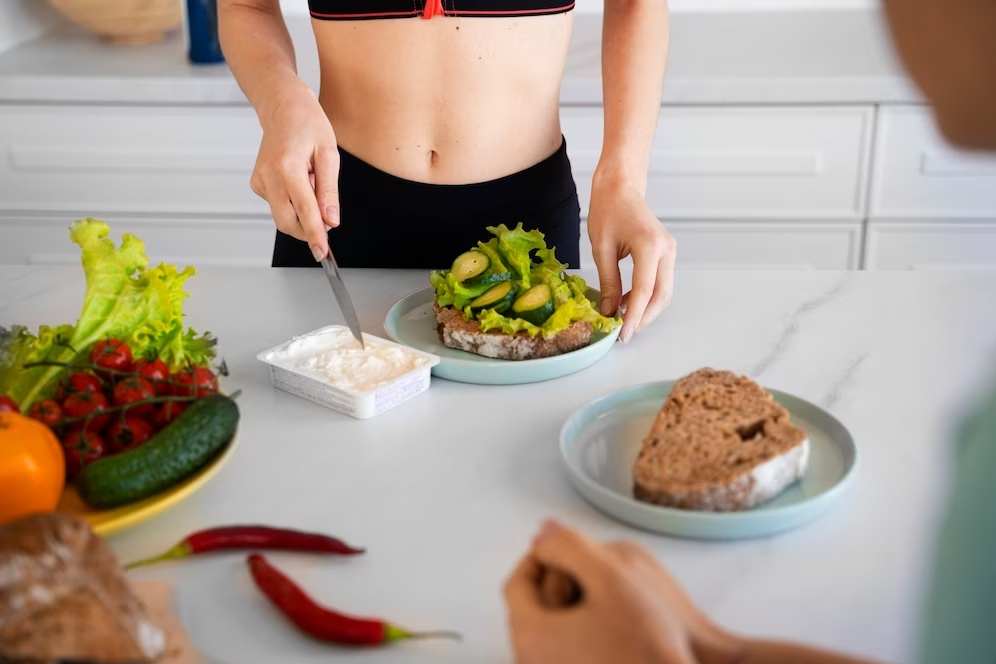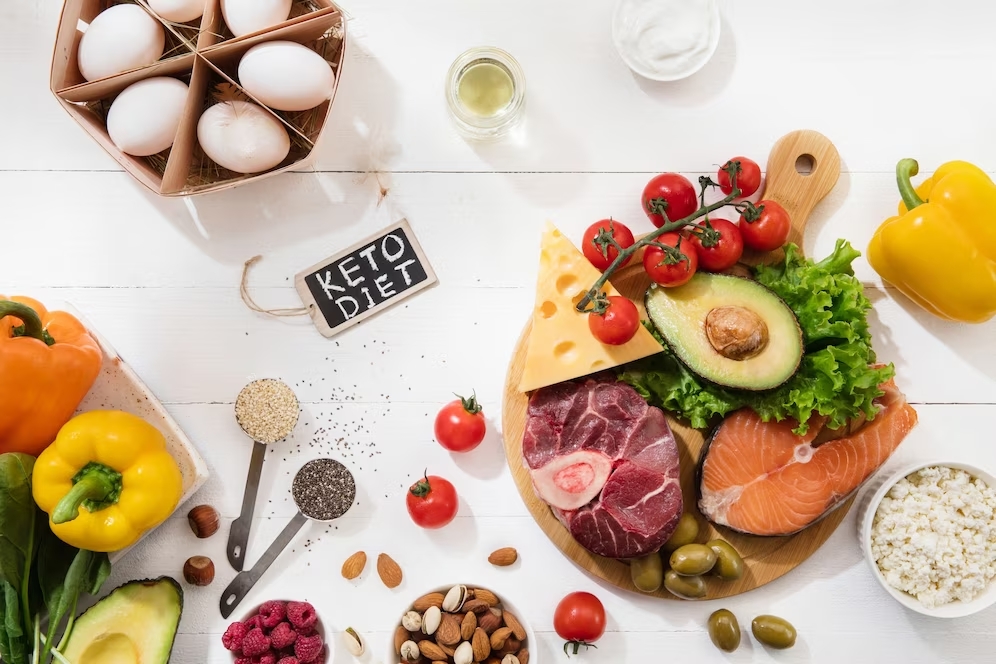Introduction to High Calorie Fruits
Why Consider High Calorie Fruits?
When aiming to gain weight, people often think of calorie-dense junk food. However, fruits offer a natural and healthy alternative. High calorie fruits can be an excellent addition to your diet if you’re looking to gain weight in a nutritious way. These fruits are packed with vitamins, minerals, and healthy fats, making them a better choice compared to processed foods.
Benefits of High Calorie Fruits for Weight Gain
High calorie fruits not only help you gain weight but also provide numerous health benefits. They are rich in essential nutrients, antioxidants, and fiber, which can improve overall health while aiding in weight gain. Incorporating these fruits into your diet can lead to healthy weight gain, improved digestion, and better skin health.
Understanding Calories in Fruits
Caloric Content
The caloric content of fruits varies widely. Some fruits are low in calories, while others are significantly higher. High calorie fruits typically contain more natural sugars and healthy fats, making them ideal for weight gain.
Nutrient Density
Nutrient density refers to the amount of nutrients a food contains relative to the number of calories. High calorie fruits often have high nutrient density, meaning they provide essential nutrients along with their caloric content.
How Fruits Can Help You Gain Weight
Fruits can help you gain weight by providing a natural source of energy. Their high sugar and fat content can increase your caloric intake, leading to weight gain. Additionally, the fiber in fruits aids digestion and ensures that the extra calories are utilized efficiently.
Top High Calorie Fruits for Weight Gain
Avocados: Nutritional Powerhouse
Caloric Content: One medium avocado contains approximately 240 calories.
Health Benefits: Avocados are rich in healthy fats, fiber, and vitamins like Vitamin E and C. They support heart health, improve skin condition, and provide a good amount of energy.
Ways to Incorporate Avocados into Your Diet:
- Add slices to your salads.
- Blend into smoothies.
- Use as a spread on toast.
- Incorporate into dips like guacamole.
Bananas: Convenient and Nutritious
Caloric Content: One medium banana contains about 105 calories.
Health Benefits: Bananas are a good source of potassium, vitamin B6, and fiber. They help in muscle recovery, digestion, and provide quick energy.
Ways to Incorporate Bananas into Your Diet:
- Add to your morning cereal or oatmeal.
- Blend into smoothies.
- Eat as a quick snack.
- Use in baking recipes like banana bread.
Dates: Nature’s Candy
Caloric Content: One date contains about 66 calories.
Health Benefits: Dates are packed with fiber, potassium, and antioxidants. They help improve digestion, boost energy levels, and are beneficial for heart health.
Ways to Incorporate Dates into Your Diet:
- Eat as a snack.
- Add to smoothies for natural sweetness.
- Use in baking for a healthy sugar substitute.
- Stuff with nuts for a nutrient-dense snack.
Figs: Sweet and Filling
Caloric Content: One large fig contains about 47 calories.
Health Benefits: Figs are rich in fiber, vitamins, and minerals like magnesium and potassium. They support digestive health and provide a sweet, satisfying snack.
Ways to Incorporate Figs into Your Diet:
- Eat fresh or dried as a snack.
- Add to salads for a sweet touch.
- Use in baking and cooking.
- Combine with cheese for a gourmet snack.
Coconut: Versatile and Rich
Caloric Content: One cup of shredded coconut contains about 283 calories.
Health Benefits: Coconut is rich in healthy fats, fiber, and minerals like manganese. It supports heart health, improves digestion, and provides long-lasting energy.
Ways to Incorporate Coconut into Your Diet:
- Add shredded coconut to your cereal or yogurt.
- Use coconut milk in cooking.
- Snack on coconut chips.
- Blend coconut oil into smoothies.
Mangoes: Tropical Delight
Caloric Content: One cup of sliced mango contains about 99 calories.
Health Benefits: Mangoes are high in vitamins A and C, as well as fiber. They improve digestion, boost immunity, and provide a sweet, tropical flavor.
Ways to Incorporate Mangoes into Your Diet:
- Add to smoothies.
- Eat as a fresh snack.
- Use in fruit salads.
- Incorporate into salsas and chutneys.
Grapes: Juicy and Delicious
Caloric Content: One cup of grapes contains about 104 calories.
Health Benefits: Grapes are rich in vitamins C and K, antioxidants, and hydration. They support heart health and provide a refreshing, hydrating snack.
Ways to Incorporate Grapes into Your Diet:
- Eat fresh or freeze for a cool treat.
- Add to fruit salads.
- Use in chicken salad for a sweet contrast.
- Snack on them alone or with cheese.
Pomegranates: Nutrient-Rich Seeds
Caloric Content: One cup of pomegranate seeds contains about 144 calories.
Health Benefits: Pomegranates are high in antioxidants, vitamins C and K, and fiber. They support heart health, boost immunity, and provide a unique, tart flavor.
Ways to Incorporate Pomegranates into Your Diet:
- Add to salads.
- Use as a topping for yogurt or cereal.
- Blend into smoothies.
- Eat the seeds as a snack.
Dried Fruits: Concentrated Nutrition
Caloric Content: Dried fruits like raisins, apricots, and prunes have higher calorie counts due to their concentrated nature. For example, one cup of raisins contains about 493 calories.
Health Benefits: Dried fruits retain most of their nutrients and are high in fiber, vitamins, and minerals. They provide quick energy and are easy to store and transport.
Ways to Incorporate Dried Fruits into Your Diet:
- Add to trail mix.
- Use in baking recipes.
- Add to oatmeal or cereal.
- Snack on them directly.
Combining High Calorie Fruits for Maximum Impact
Fruit Smoothies
Fruit smoothies are an excellent way to combine high calorie fruits and create a nutrient-dense drink. Blend avocados, bananas, dates, and coconut milk for a rich, creamy smoothie that packs a caloric punch.
Fruit Salads
Create fruit salads using a mix of high calorie fruits like mangoes, grapes, and figs. Add a drizzle of honey and a sprinkle of nuts for added calories and texture.
Healthy Desserts
Incorporate high calorie fruits into desserts. Make a date and nut energy bar, a mango and coconut parfait, or a fig and almond tart for a sweet treat that supports weight gain.
Tips for Gaining Weight with Fruits
Balanced Diet
While high calorie fruits can help with weight gain, it’s essential to maintain a balanced diet. Include a mix of proteins, healthy fats, and carbohydrates to ensure you get all the necessary nutrients.
Consistent Eating Schedule
Eating consistently throughout the day helps increase your caloric intake. Include high calorie fruits in your meals and snacks to boost your daily calorie count.
Portion Control
Even though the goal is to gain weight, portion control is still important. Overeating can lead to digestive issues and unhealthy weight gain. Aim for moderate portions of high calorie fruits spread throughout your day.
Common Misconceptions About Fruits and Weight Gain
Fruit Sugar Myths
A common misconception is that the sugar in fruits is bad for you. While fruits do contain natural sugars, they also provide essential nutrients and fiber that are beneficial for your health. The key is moderation and balance.
Balanced Nutritional Approach
Another misconception is that eating fruits alone will lead to weight gain. While high calorie fruits can help, a balanced diet that includes a variety of food groups is necessary for healthy weight gain.
High calorie fruits are a natural and nutritious way to gain weight. Fruits like avocados, bananas, dates, figs, and mangoes are not only calorie-dense but also packed with essential nutrients that support overall health. By incorporating these fruits into your diet, you can achieve healthy weight gain while enjoying delicious and versatile foods. Remember to maintain a balanced diet and consistent eating schedule, and consider combining high calorie fruits in smoothies, salads, and desserts for maximum impact. With the right approach, high calorie fruits can be a valuable addition to your weight gain strategy.
FAQs: Answering Your Questions
Can I gain weight just by eating high-calorie fruits?
Gaining weight primarily from eating high-calorie fruits is possible but should be part of a comprehensive approach to healthy weight gain. While these fruits provide valuable calories, it’s essential to ensure a balanced diet that includes proteins, healthy fats, and other nutrient-rich foods. Simply eating high-calorie fruits may not provide all the necessary nutrients for optimal health and muscle development. Therefore, incorporate these fruits as part of a well-rounded diet and consider consulting a nutritionist to tailor your approach to your specific goals.
How much avocado or coconut should I consume daily for weight gain?
The ideal daily consumption of avocado or coconut varies from person to person, depending on factors such as age, gender, activity level, and weight gain goals. A general guideline is to include around half an avocado or a few tablespoons of coconut oil or fresh coconut in your daily diet. However, individualized recommendations from a nutritionist are valuable to determine the right amount based on your unique circumstances.
What are the best fruits to combine with protein for muscle gain?
Combining fruits with protein-rich sources is an excellent strategy for muscle gain. Fruits like bananas, mangoes, and berries pair well with protein sources such as lean meats, poultry, fish, beans, and Greek yogurt. For instance, consider a post-workout smoothie with banana and whey protein or chicken breast paired with a mango salsa. These combinations offer a balance of macronutrients, supporting muscle development and overall health.
Are there any fruits I should avoid for weight gain?
While most fruits can be beneficial in a weight gain journey, it’s important to be cautious with citrus fruits like grapefruit if you’re concerned about weight gain. These fruits are lower in calories compared to some of their counterparts, and their high acidity can sometimes lead to digestive discomfort for some individuals. However, this doesn’t mean you should completely avoid them; you can still enjoy them in moderation as part of a well-balanced diet.
What role does hydration play in healthy weight gain?
Hydration is a critical aspect of healthy weight gain. Consuming enough water is essential for overall health and plays a significant role in muscle function, digestion, and metabolism. When you’re incorporating high-calorie fruits into your diet, it’s important to ensure you’re staying well-hydrated. Fruits like watermelon, for example, are not only delicious but also help keep you hydrated due to their high water content. Proper hydration supports your body’s ability to absorb and utilize the nutrients from the fruits effectively.
Can I lose weight while eating fruits?
Yes, it’s entirely possible to lose weight while eating fruits, given the right approach. Fruits are naturally low in calories and high in fiber, which can promote feelings of fullness and reduce overall calorie intake. To lose weight, focus on a calorie deficit by consuming fewer calories than you burn, while ensuring a balanced diet that includes a variety of fruits and other nutrient-rich foods. Moderation and portion control are key when aiming for weight loss while enjoying fruits.
Is fruit good for weight loss?
Yes, fruits are a valuable component of a weight loss plan. They are low in calories and rich in vitamins, minerals, and fiber, making them a nutritious and satisfying choice. Fruits like apples, berries, and citrus fruits are particularly beneficial for weight loss due to their high fiber content, which promotes satiety. However, as with any dietary approach, it’s important to maintain a balanced diet, control portion sizes, and stay within your daily calorie goals to effectively lose weight.
Which fruit has the most calories?
Among fruits, avocados are known to have one of the highest calorie counts. A typical avocado contains approximately 234 calories. Other calorie-dense fruits include coconut, dates, figs, and dried fruits like raisins and apricots. Incorporating these fruits into your diet can contribute to healthy weight gain.
What fruits make you gain weight the fastest?
While individual results may vary, fruits that can help you gain weight more rapidly due to their higher calorie content include avocados, coconut, dried fruits, bananas, and mangoes. Combining these calorie-rich fruits with other nutrient-dense foods and maintaining a calorie surplus is key to achieving weight gain goals.
Can fruit make you gain weight in an unhealthy way?
Yes, even when consuming fruits, it’s possible to gain weight in an unhealthy manner if you solely rely on high-calorie fruits and neglect a balanced diet. An unhealthy weight gain typically involves an excessive consumption of calories from any source, leading to fat accumulation and potential health issues. To gain weight in a healthy way, focus on balanced nutrition, exercise, and gradual weight gain to support muscle development rather than unhealthy fat gain. Always consult a healthcare professional or nutritionist for personalized guidance on your weight gain journey.
Disclaimer:
This article provides general information and should not replace professional medical advice. Consult a healthcare provider for personalized guidance.

David M is a seasoned author renowned for his expertise in health tips and homemade remedies. With a passion for wellness, he diligently researches and meticulously analyzes a plethora of online resources, ensuring their credibility. David’s dedication shines through as he curates invaluable information, catering to health enthusiasts.










